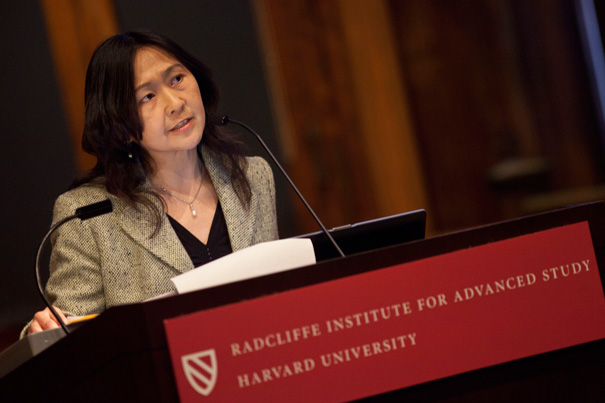Nation & World
-

Unfuzzy math: U.S. needs to do better
Ed School expert has some ideas, including a rethink of homework bans, after ‘discouraging’ results

-

What to expect when you’re elected
Bipartisan group of lawmakers gets to know Washington by way of the IOP
-

Defining and confronting campus antisemitism
Scholars in Jewish Studies say education, conversation can bolster efforts to defeat hate
-
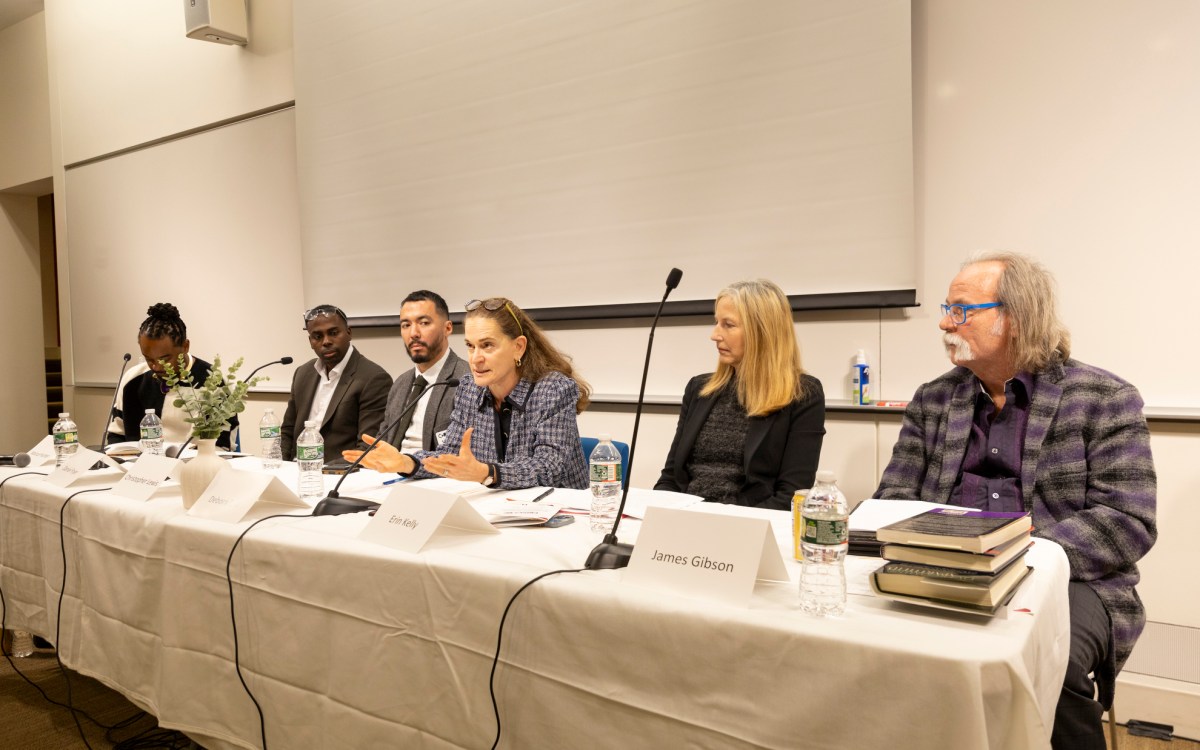
Are reparations the answer?
Harvard symposium explores case for restitution to Black Americans legally, economically, ethically
-

Exact cause of Notre-Dame fire still unclear. But disaster perhaps could’ve been avoided.
Leadership expert says foreseeable factors all contributed to complex failure. Consistent focus needed on best practices, rules, procedures.

-
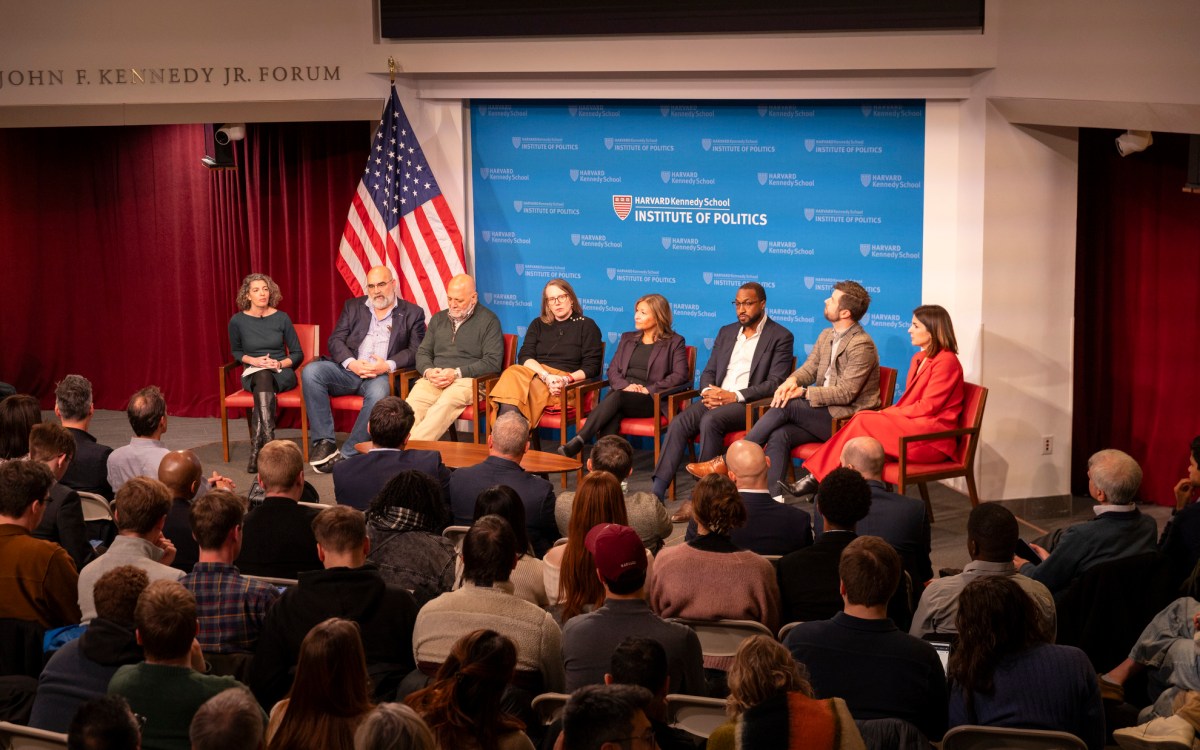
How the presidency was won, lost
Top campaign leaders from both sides talk about what worked, didn’t at Kennedy School postmortem
-
Power, personified
In a talk on his book “The Rise and Fall of Arab Presidents for Life,” Professor Roger Owen described how the Arab world’s dictators came to power — and how their curious political network helped fuel the eventual uprisings against some of them.

-
Bright future for news business
“It’s important we focus on the future, not the past,” warned Richard Gingras, head of news products for Google. “We can’t reverse time.” Gingras came to the Nieman Journalism Lab Friday not as doomsayer from Silicon Valley to predict the demise of the news business, but rather to foresee a bright future.
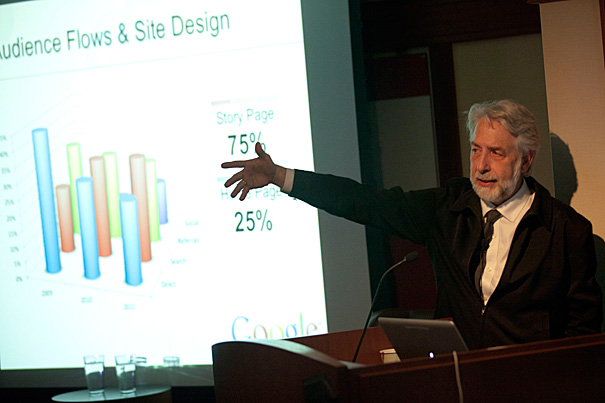
-
Freedom’s just another word
The poor often have too many basic choices, which can sap their resources and energy, economist says.
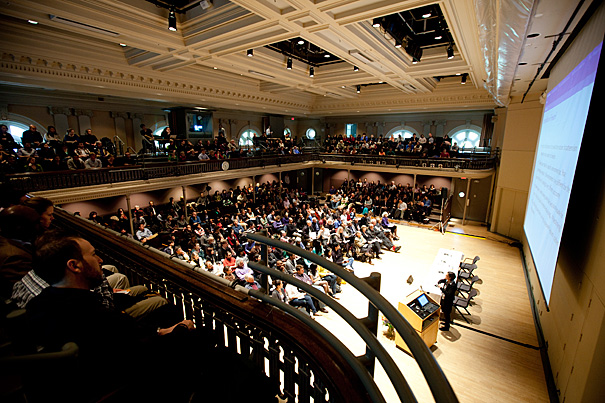
-
Getting students to enroll, stay in college
A panel of education experts convened at the Harvard Graduate School of Education to explore what it will take to reach the Obama administration’s goal of reclaiming the world’s top college graduation rate by 2020.
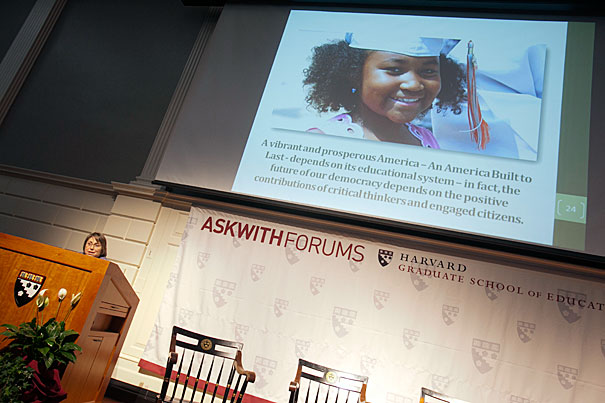
-
Helping teachers hone their techniques
Ronald Heifetz of HKS led the final seminar in this year’s “Talking about Teaching” series, a University-wide effort to explore pedagogical connections across disciplines and Schools.
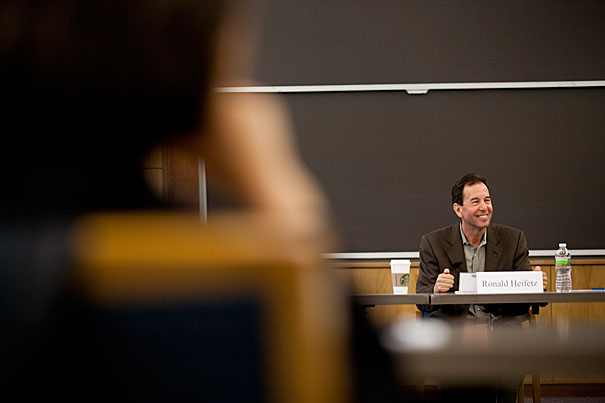
-
Improving the world is a serious business
The finalist teams in the first-ever President’s Challenge for social entrepreneurship are tackling the problems of nonprofits with the playbook of for-profits.
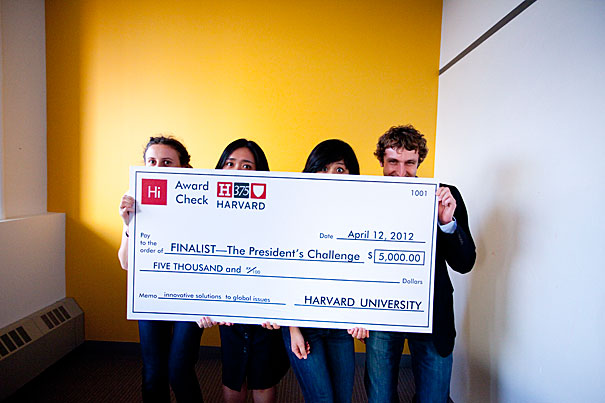
-
Educating Harvard, MIT — and the world
Harvard and MIT are joining forces to launch edX, an open-source, online education platform. Leaders from both universities discussed how they hope to transform teaching and learning on campus and around the globe.
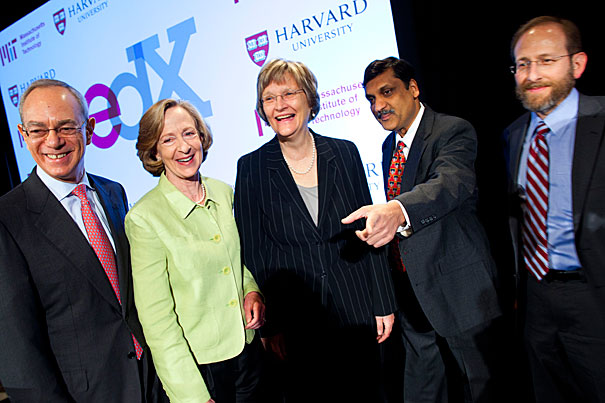
-
Middle class woe
The American middle class has been battered by the loss of well-paying jobs for the 70 percent of the workforce without a college degree and failed by would-be protectors in government and private institutions, said panelists in a Harvard forum on April 27.
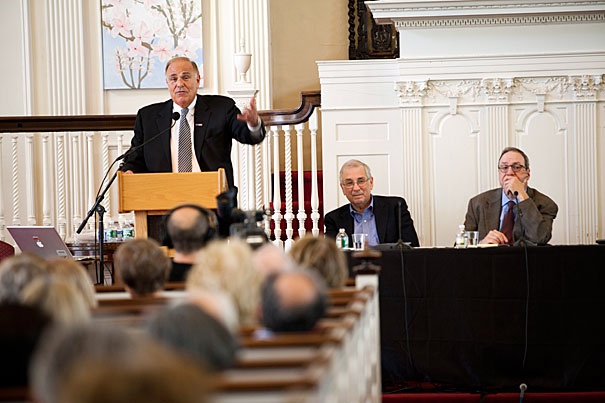
-
Business as a force for change
Business can be an engine for solving social problems — especially poverty — said Nobel Peace Prize winner Muhammad Yunus in a talk at Harvard Business School.
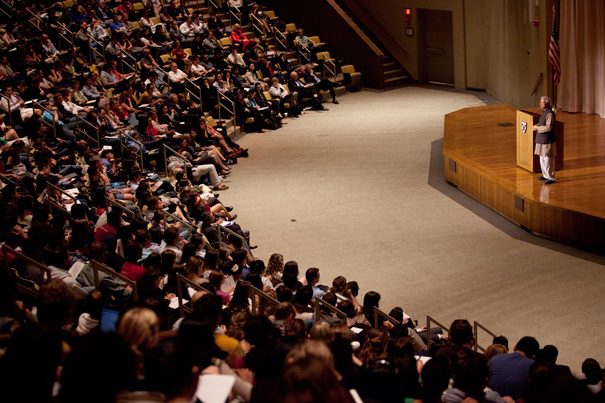
-
Policing for, and with, the community
The idea that law enforcement should work with citizens to help prevent, reduce, and solve crimes took flight through an unusual collaboration of academics and police leaders at Harvard Kennedy School.
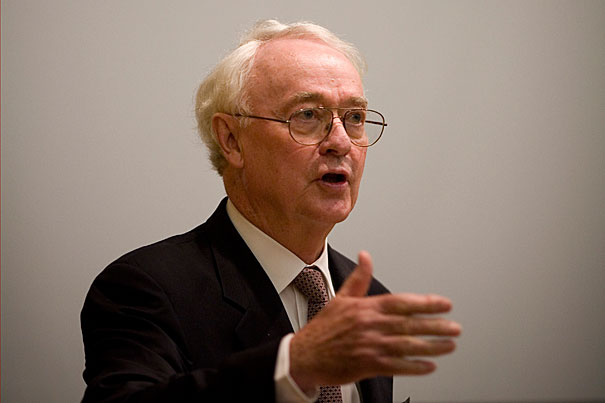
-
47 proposals win Hauser grants
The Harvard Initiative for Learning and Teaching (HILT) is supporting 47 proposals from the Harvard community. The efforts will receive a total of nearly $2 million in inaugural Hauser Fund grants.
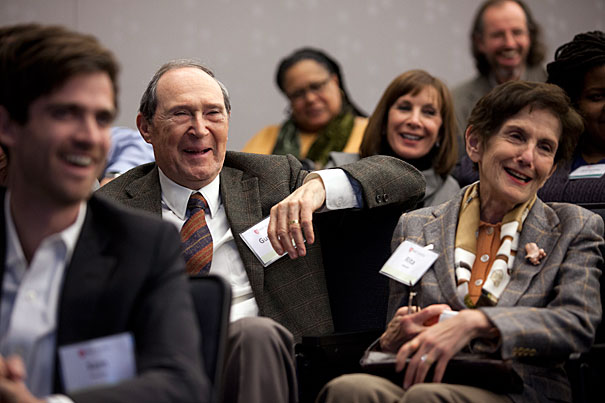
-
10 finalists in President’s Challenge
Harvard University has chosen 10 teams as finalists in the President’s Challenge for social entrepreneurship. President Drew Faust created the challenge to encourage student teams from across the University to develop entrepreneurial solutions to five of the world’s most important social issues.
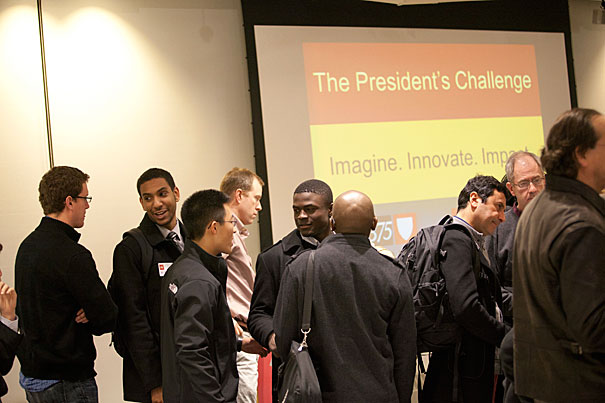
-
Kissinger looks back
Henry Kissinger has spent more than half a century thinking about and shaping foreign policy. At Sanders Theatre on Wednesday, the former Secretary of State reflected on the “hobby that became my profession.”
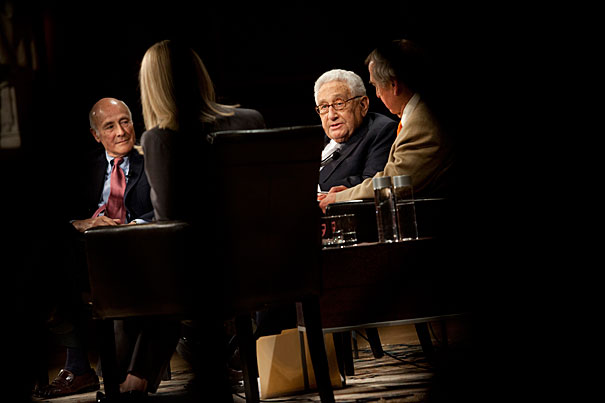
-
Women fighting for change
During the Radcliffe Institute’s annual gender conference, scholars gathered to explore the role of women in forging democracies across the Arab world.
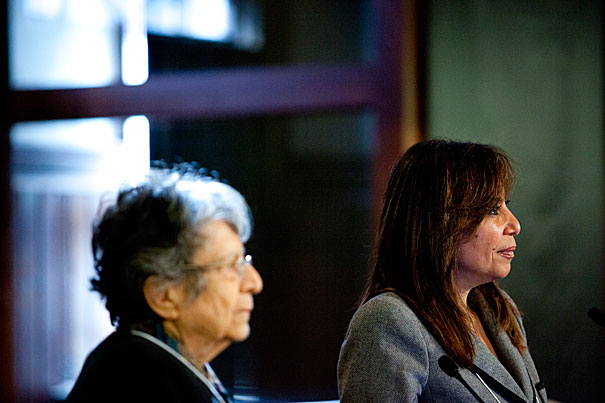
-
In support of the generalist
Andrew Delbanco, social critic and recipient of the National Humanities Award, warned in a speech that the shift of American higher education away from its liberal arts traditions undermines democratic society as universities push students into preprofessional pursuits.
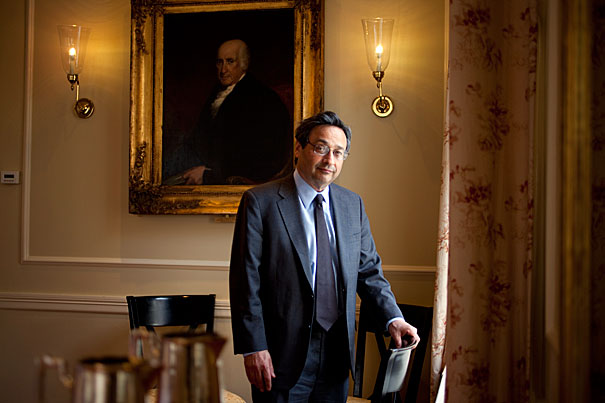
-
Disaster by the numbers
Reported natural disasters are up dramatically since 1950, with more lives damaged by homelessness and injury, even as modern medical care and improved disaster response have reduced the number of lives lost, an authority on global disaster data says.
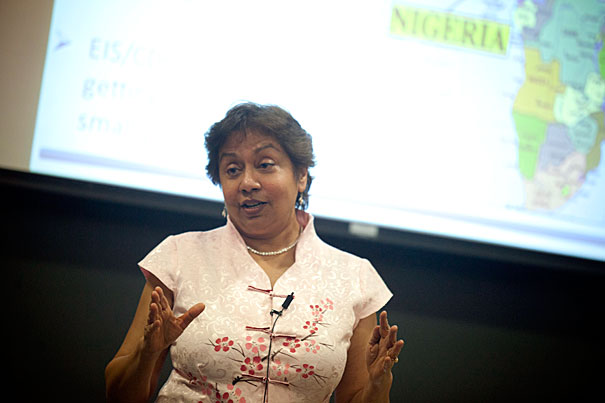
-
Changing the world, in under 9 minutes
The inaugural event “One Harvard: Lectures that Last” featured short talks by a dozen speakers representing Harvard’s graduate and professional Schools. The session was designed to reveal the crosscurrents of innovation that can flow from discipline to discipline, and to expose students to fresh ideas.
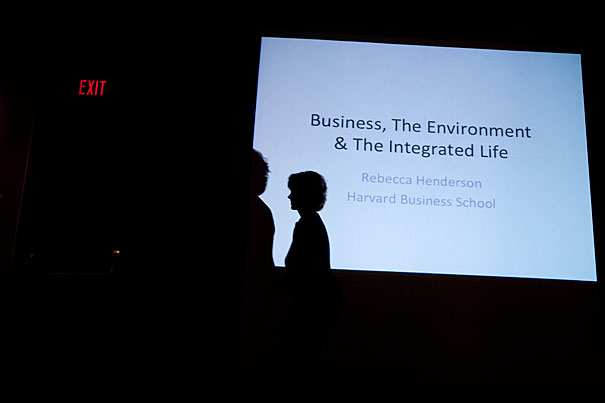
-
Teaching, NFL style
Panelists in a recent Askwith Forum discussed lessons for educators in the ways NFL teams prepare for games and evaluate talent.
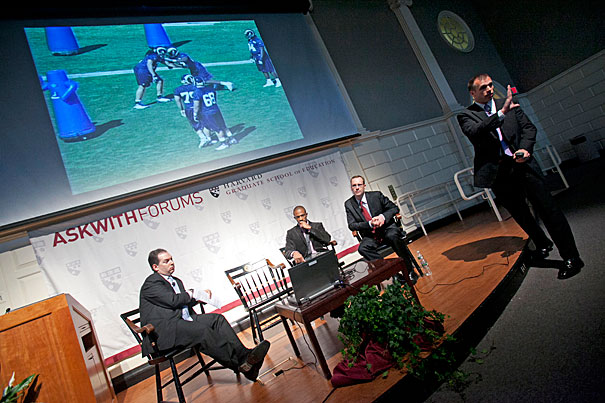
-
Wise negotiator
At Harvard to receive the Great Negotiator Award, James A. Baker III offered his insight and political perspective on his time as a senior government official for three U.S. presidents.
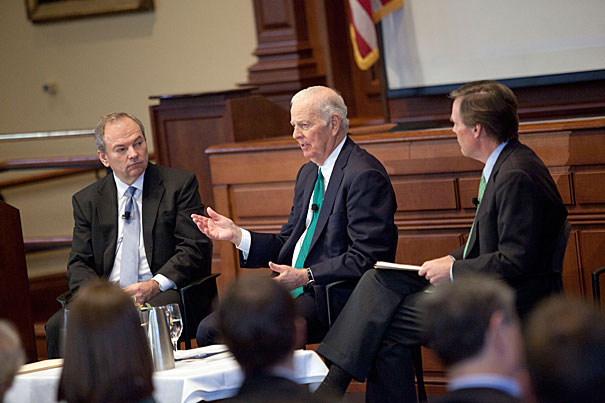
-
Fighting for education, and nation’s future
Geoffrey Canada received the Harvard Graduate School of Education Medal for Educational Impact. The School’s highest honor recognizes those who demonstrate an outstanding contribution to education. Canada discussed his time at the School of Education and his work with the Harlem Children’s Zone.
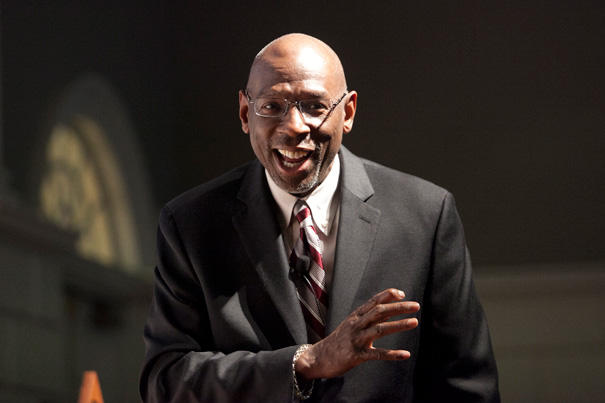
-
Lessons from deep underground
Laurence Golborne was Chile’s mining minister in 2010 when a mineshaft collapse catapulted him into the international spotlight. The subsequent 69-day operation that Golborne led to rescue 33 trapped miners made him famous.

-
Japan’s mistakes
Assurances of the safety of Japan’s nuclear industry lulled the government and the public into a false sense of security that was shattered a year ago when a massive earthquake and tsunami rocked the Fukushima Daiichi nuclear power plant, the head of a panel that reviewed the disaster told a Harvard audience March 26.
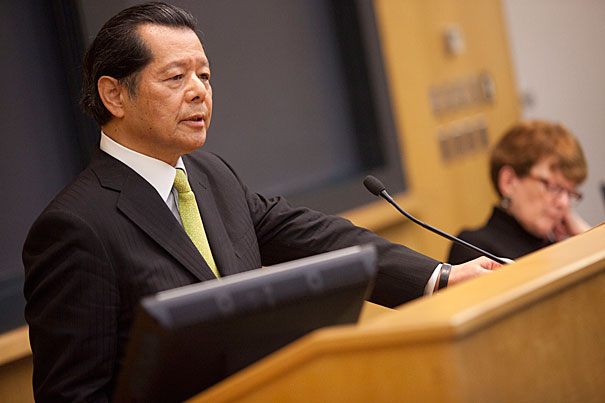
-
Q&A on health care reform
Constitutional scholar Laurence Tribe offers his analysis of this week’s hearings before the Supreme Court on mandatory coverage.
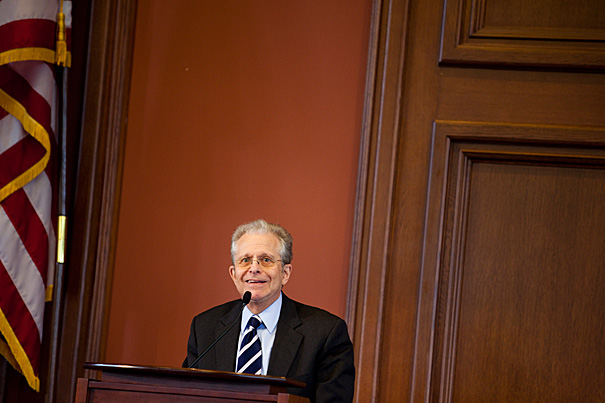
-
The ethical letter of the law
Professor Howard Gardner challenges aspiring lawyers at Harvard Law School to think about the ethics of their profession.
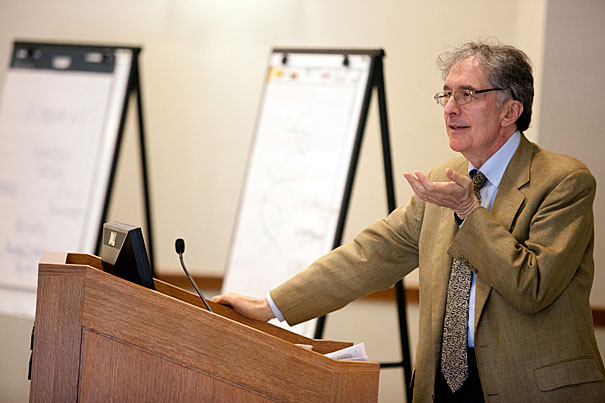
-
A welcome home
After more than a decade away, Professor Eric Maskin returned to the Economics Department this semester to a warm reception — and with a Nobel Prize in tow.
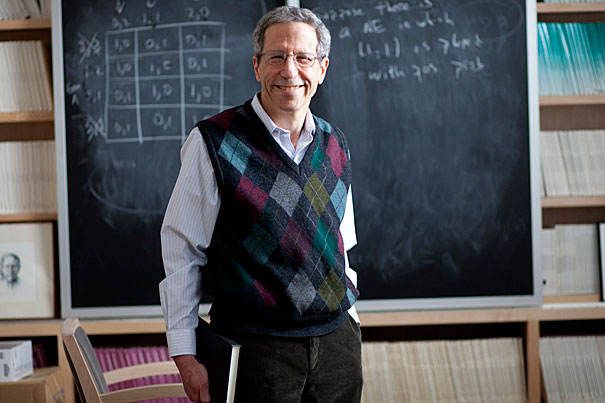
-
A cleanup plan for D.C.
Trust in Congress is at an all-time low, but corrupt politicians aren’t to blame. For true reform, America must fix a broken system that relies on money from a fraction of the 1 percent, Harvard Law School Professor Lawrence Lessig argued on March 19.
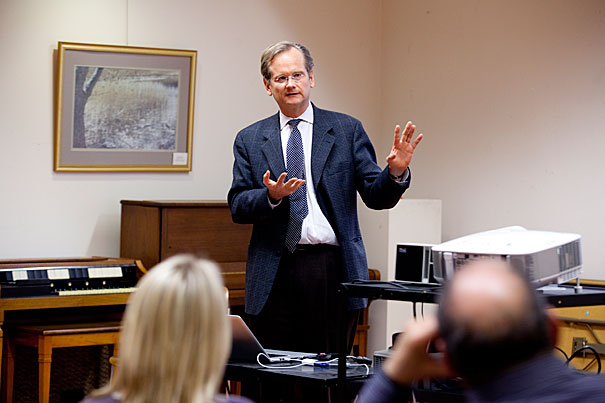
-
Investigative journalism, alive and well
Investigative reporting is an increasingly rare luxury for many news organizations. A Shorenstein Center roundtable featuring the finalists for the Goldsmith Awards in Political Journalism proved that with resources, hard work, and collaboration, the craft can thrive.
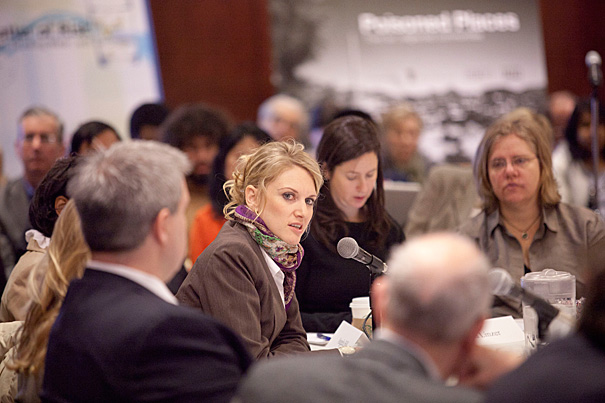
-
What helps low-income students
During a discussion at Harvard Graduate School of Education, Teach For America founder Wendy Kopp defended her initiative, which places recent college graduates as teachers in underserved communities for two years.
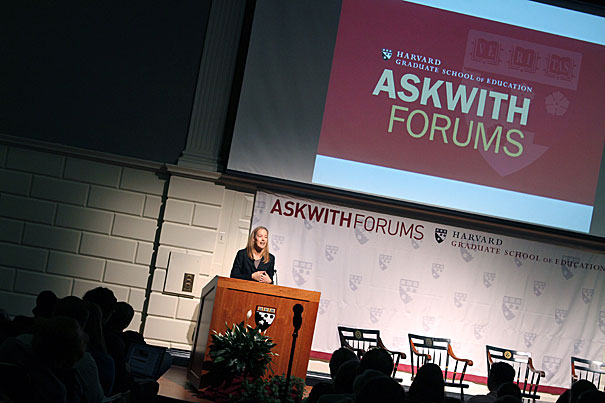
-
The record of Japanese disaster
Harvard experts were among the lead organizers of a major effort to construct a multimedia archive of last year’s devastating earthquake and aftermath in Japan. The site goes live this week.
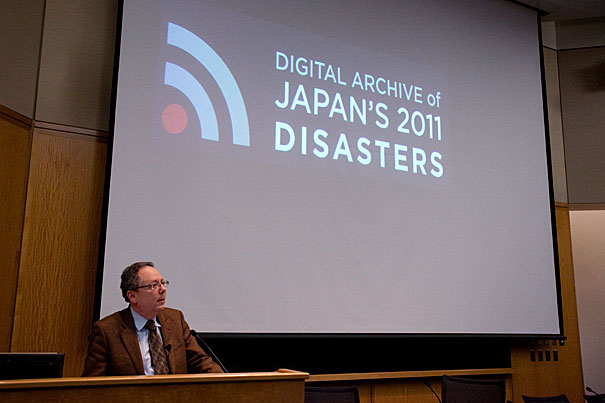
-
The parenting divide
As a fellow at the Radcliffe Institute for Advanced Study, Pei-Chia Lan is exploring how Taiwanese and Chinese immigrants negotiate cultural differences in child rearing and how they parent transnationally.
